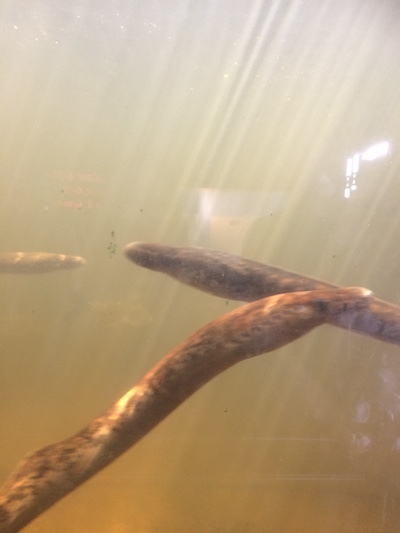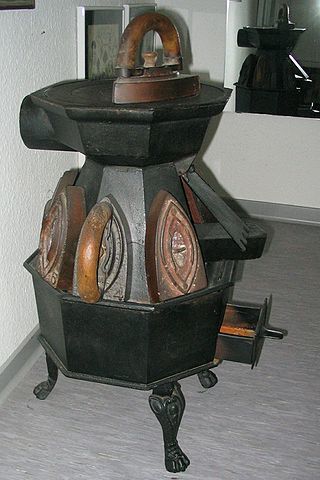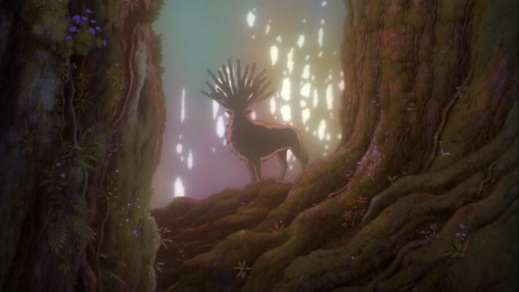I'm nearly done with The Mountain in the Sea, by Ray Nayler, which I picked up hoping and expecting a cool nonhuman intelligence first-contact situation (with octopuses), and which has that, sort of, but is mainly about the nature of consciousness and the mind, human loneliness, and How Bad We Humans Are For This World Of Ours. To my amusement and chagrin, the plotline that pulled me in is the corporate scheming one--more so than the octopus researcher + lonely android, and definitely more than the slave fishing vessel. (Favorite characters so far: Rustem the hacker and Altantsetseg the security person.) But they've all been gripping enough to keep me reading and thinking.
I'll do a proper review later, but what I want to talk about here is the concept of "Point Fives" (.5). In the novel, a character remarks that many people don't really want to interact with a whole, complete other person (1.0)--too much friction! They want someone who's always interested in what they're doing--not just as a yes-man, but with genuine interest, asking appropriate questions, etc.--someone who has enough of a personality to have their own interesting quirks and unexpected conversational gambits, but who will never grandstand, never make emotional demands, will always take second place to the "full" person. (As I type this, it occurs to me that basically the character is saying that people want the stereotyped 1950s male ideal of a wife.) In the story, these exist! AI virtual companions. (Not physically, I don't think: just as like a hologram.)
Maybe needless to say, the narrative thrust of the story disapproves of this philosophically, while acknowledging its seductiveness. And I'm here to underline both parts of that! Both the disapproval, but also the seductiveness--speaking as someone who has essentially built up Point Fives in my head from time to time.
Example: When I was eight, friends of my parents came over from England, bringing two of their kids, one of whom, a girl, was my age. She read the same stories I did! Even the weird ones! I had a great time playing with her, and after she left, I decided she was my True Best Friend, my one and only. She wrote me letters in which she drew pictures of horses--and she could draw them so they looked real! I fantasized about her coming back to visit. I fantasized about her coming to school with me. I fantasized about drawing pictures together, going on adventures together, reading stories together, etc.
I did have some real input for these fantasies--she was really writing letters--but for the most part I was creating her to suit me. But it caused eventual disappointment because guess what! She was her own real person, with her own real interests, not ones scripted by me! I've done similar with other people. It always requires that the person be conveniently unavailable in some way: real, present people are not so amenable to this treatment. After years of experience, I now can recognize the danger signs of this behavior and (try to) nip it in the bud.
Meanwhile, I'm happy to say I've had real friendships, with people who are really present--not necessarily physically present in my house or neighborhood (though yes, in my house and neighborhood too)--but present in the sense that I'm interacting with them in multiple ways, and frequently, so we're seeing multiple aspects of each other. We have a sense of obligation or responsibility for one another--probably not an equal sense: for one thing, people are rarely exactly balanced in their degree of interest in or commitment to one another, but also, people need and want different amounts of commitment, and people have differing abilities to give. So it's not a balanced thing, and it's not without friction, stress, and disappointment. But it's also very rewarding, very beautiful, in moments.
In The Mountain in the Sea, one character reflects on not really seeing the people he's around. A traumatic thing has just happened, and it awakens in him a desire to have his eyes open from now on, to see and pay attention to the people (and one can extend this beyond just people, though probably we do own an extra something to our species siblings). It's the first step away from the solipsism represented by Point Fives.
I'll do a proper review later, but what I want to talk about here is the concept of "Point Fives" (.5). In the novel, a character remarks that many people don't really want to interact with a whole, complete other person (1.0)--too much friction! They want someone who's always interested in what they're doing--not just as a yes-man, but with genuine interest, asking appropriate questions, etc.--someone who has enough of a personality to have their own interesting quirks and unexpected conversational gambits, but who will never grandstand, never make emotional demands, will always take second place to the "full" person. (As I type this, it occurs to me that basically the character is saying that people want the stereotyped 1950s male ideal of a wife.) In the story, these exist! AI virtual companions. (Not physically, I don't think: just as like a hologram.)
Maybe needless to say, the narrative thrust of the story disapproves of this philosophically, while acknowledging its seductiveness. And I'm here to underline both parts of that! Both the disapproval, but also the seductiveness--speaking as someone who has essentially built up Point Fives in my head from time to time.
Example: When I was eight, friends of my parents came over from England, bringing two of their kids, one of whom, a girl, was my age. She read the same stories I did! Even the weird ones! I had a great time playing with her, and after she left, I decided she was my True Best Friend, my one and only. She wrote me letters in which she drew pictures of horses--and she could draw them so they looked real! I fantasized about her coming back to visit. I fantasized about her coming to school with me. I fantasized about drawing pictures together, going on adventures together, reading stories together, etc.
I did have some real input for these fantasies--she was really writing letters--but for the most part I was creating her to suit me. But it caused eventual disappointment because guess what! She was her own real person, with her own real interests, not ones scripted by me! I've done similar with other people. It always requires that the person be conveniently unavailable in some way: real, present people are not so amenable to this treatment. After years of experience, I now can recognize the danger signs of this behavior and (try to) nip it in the bud.
Meanwhile, I'm happy to say I've had real friendships, with people who are really present--not necessarily physically present in my house or neighborhood (though yes, in my house and neighborhood too)--but present in the sense that I'm interacting with them in multiple ways, and frequently, so we're seeing multiple aspects of each other. We have a sense of obligation or responsibility for one another--probably not an equal sense: for one thing, people are rarely exactly balanced in their degree of interest in or commitment to one another, but also, people need and want different amounts of commitment, and people have differing abilities to give. So it's not a balanced thing, and it's not without friction, stress, and disappointment. But it's also very rewarding, very beautiful, in moments.
In The Mountain in the Sea, one character reflects on not really seeing the people he's around. A traumatic thing has just happened, and it awakens in him a desire to have his eyes open from now on, to see and pay attention to the people (and one can extend this beyond just people, though probably we do own an extra something to our species siblings). It's the first step away from the solipsism represented by Point Fives.






















